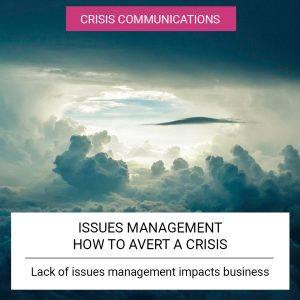
Take the necessary steps to protect your business and its reputation by engaging in a robust issues management process.
With the reopening of school’s this week, and the vaccination programme well under way (with over 22m doses administered at the time of writing), we are actively on the path out of lockdown. But what does that mean for your business? Where do you go from here? From a crisis management perspective, it means being prepared for, and knowing when to enter, the ‘Crisis Recovery’ phase of this global crisis.
There’s no sugar-coating it – the next phase that has already been a very difficult time for many businesses – may well be a long and difficult one for you too. Recovering from a crisis takes time, and you will need to work on it. Moving forward, depending on how you deal with this new phase, could either result in a positive outcome that might even boost your brand reputation, or you could end up with long-term reputational damage.
Having a successful response to how you have dealt with the crisis whilst it’s ongoing puts you in good stead for an easier recovery phase. However, if it’s been a struggle to manage the crisis effectively, the recovery phase could be the last opportunity for you to resolve the risk of reputational damage to your business. To take the first steps to Crisis Recovery, you will need to understand what recovery means to your business. What will it look like? Knowing this will support the development of your crisis communication plan.
Simply put, the recovery phase of a crisis is when you have moved past the period of managing the initial impact of a crisis, and are starting to rebuild your reputation. Which is why your initial crisis response correlates with the level of difficulty you experience during this phase. In addition to repairing your reputation, the Crisis Recovery stage is where you deal with the long-term effects of a crisis, how you apply the learnings from the situation, as well as managing issues to protect against the crisis recurring in the future.
Your reputation, which is built up of how you perform, behave and communicate, is inextricably linked with the financial success of your business. So planning, not only, how to move towards your new normal of ‘business as usual’, but what you will communicate and how, is incredibly important too. Crisis planning has to include all elements of your response, including communications.
When transitioning from response to recovery, it’s imperative to consider whether it’s the right time to make the transition. As moving towards recovery whilst you’re still in the midst of handling the crisis will cause more problems than it will resolve. This decision is affected by both the people impacted by the crisis, as well as the crisis itself. Is the crisis under control? Has business returned to its normal operations? Are people still adversely affected by the crisis? These questions amongst other data and insight will help you define the right time.
People’s perception of your brand, and how it handled the crisis, is a key aspect of your crisis recovery. Showing empathy and genuine concern, along with being honest, trustworthy and authentic will build and repair (if you need to) the confidence and trust of your customers. Once you’ve navigated your way to a new normal for your business, don’t forget to learn from this crisis. Use your experience and findings to adapt and improve your crisis plans so you’re ready to deal with anything that comes your way. After all, in the words of Benjamin Franklin: ‘Fail to prepare; prepare to fail’.
This article was first published in the Suffolk Free Press, Thursday 11 March 2021.

Take the necessary steps to protect your business and its reputation by engaging in a robust issues management process.

Proactive issues management is a game changer. Turn threats into opportunities with issues management.

Having a workforce that is motivated and engaged can do wonders for the success of your organisation. Building a strong community of empowered employees that feel integral to your organisation is.

What can public relations do for your business? Public relations (PR) is at the heart of everything your business does. It’s a force to be reckoned with.
© 2019-2020 All rights reserved
Knight Media Communications Ltd | Company no. 12064990